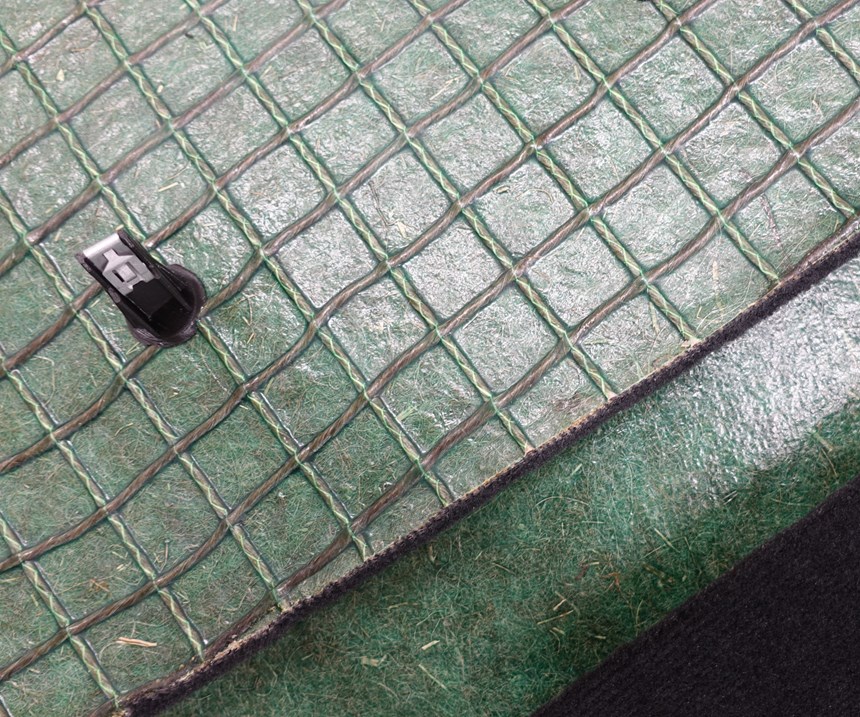Volvo XC60 demonstrator employs Bcomp's natural fiber reinforcement technology
Bcomp’s renewable fiber reinforcements are used in interior panels in the recycled plastics demonstrator vehicle XC60 to overcome the degraded properties of recycled plastic.
Bcomp Ltd. (Fribourg, Switzerland), a company specializing in natural fibers for lightweight high-performance composite applications, announced June 19 its collaboration with Volvo Cars (Gothenburg, Sweden).
As Volvo Cars release the recycled plastics demonstrator XC60 vehicle, Bcomp’s powerRibs natural fiber reinforcement technology is combined with ocean plastic. The resulting composite material enables the use of ocean plastic in semi-structural automotive interior parts, and simultaneously cuts up to 50% weight compared to standard parts.
Plastic waste in oceans a major environmental hazard. However, the degraded properties of recycled ocean plastic only allow for limited applications within the automotive industry. Bcomp’s powerRibs reinforcement technology, made from flax fiber, is used to boost the properties of ocean plastic allowing for its use in semi-structural interior parts.
Volvo Cars has declared its ambition that from 2025, at least 25% of plastics in new Volvo cars will be made from recycled material, a specially built XC60 T8 was launched to showcase new, more sustainable technologies during the Ocean Summit at the Volvo Ocean Race stopover in Gothenburg, Sweden.
Related Content
-
Lingrove plant-based ekoa composite featured in Hyundai Palisade concept vehicle
Carbon-neutral biocomposite enables interactive doorspear with look and feel of wood while protecting trees, enabling transparency and capacitive touch for futuretech.
-
Bio-based SiC ceramics from wood polymer composites
Austrian research institute Wood K plus makes 95% silicon carbide ceramics more sustainable (>85% bio/recycled content), enables 3D shapes via extrusion, injection molding and 3D printing.
-
Airbus works to improve the life cycle of composites in future aircraft
This companion article to CW's September 2024 Airbus Illescas plant tour discusses recycling, LCA, biocomposites, Fast Track technologies, qualification and more.












.jpg;maxWidth=300;quality=90)




